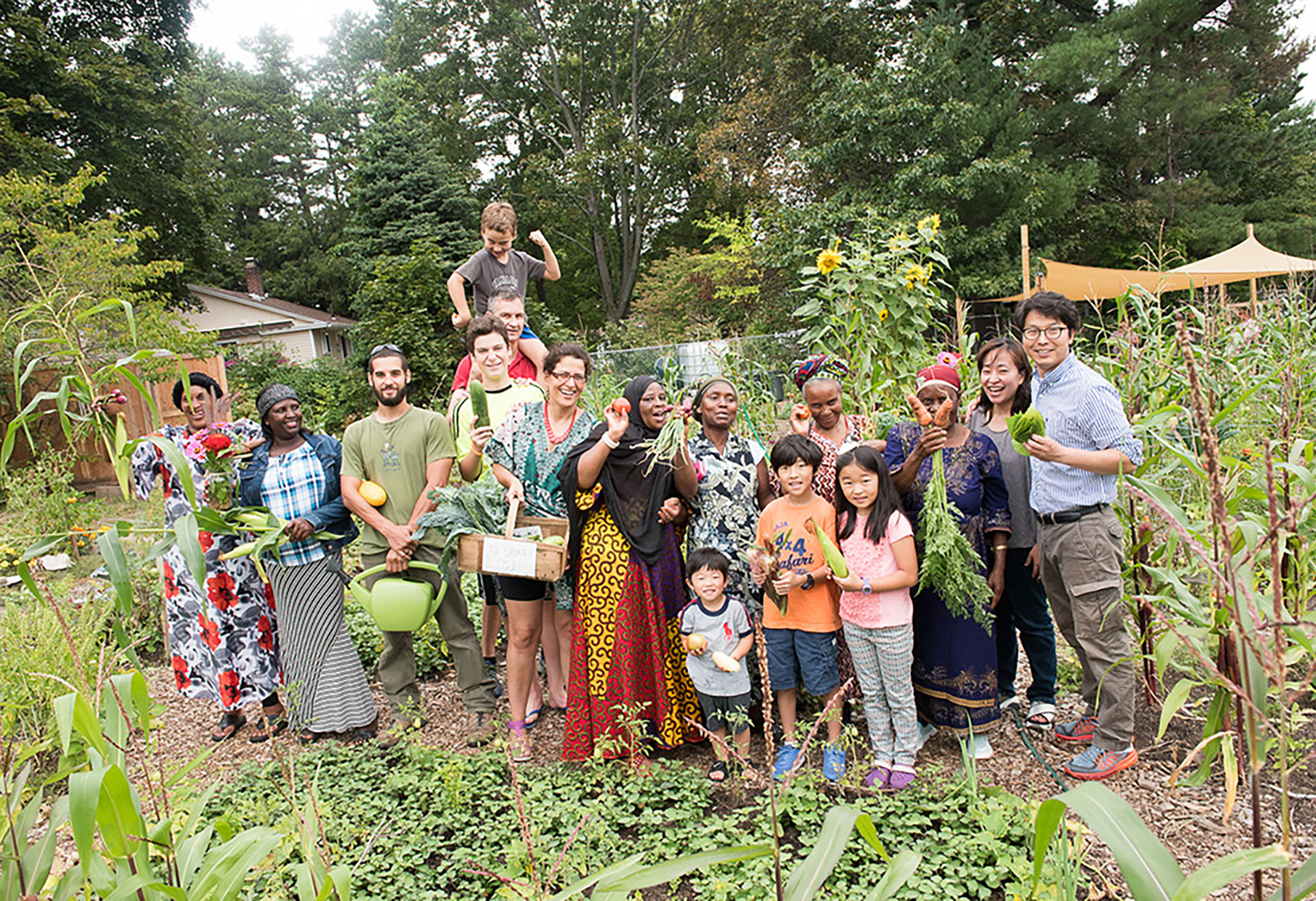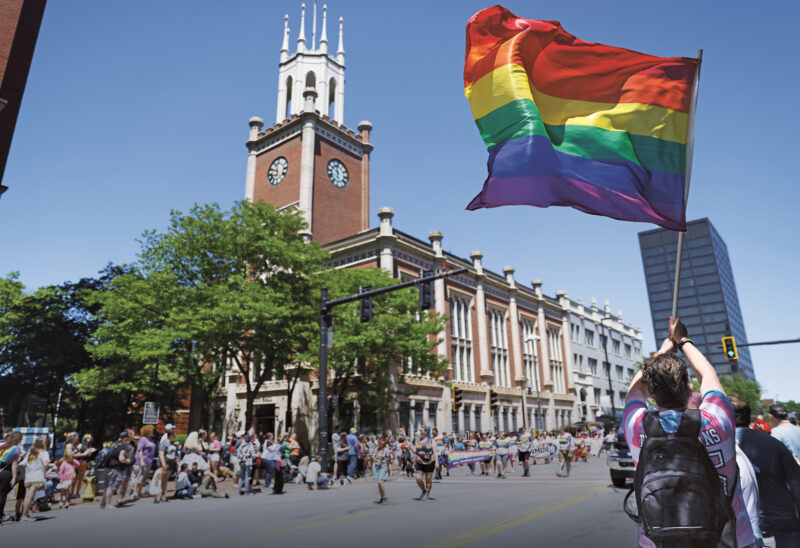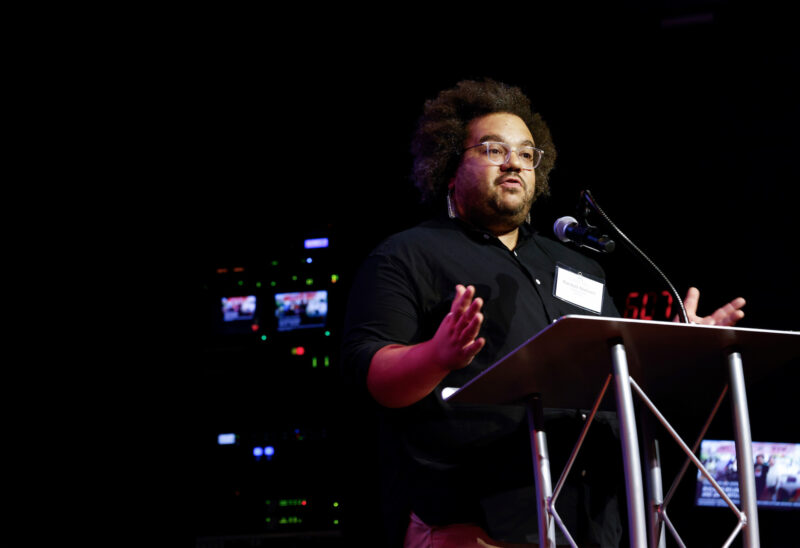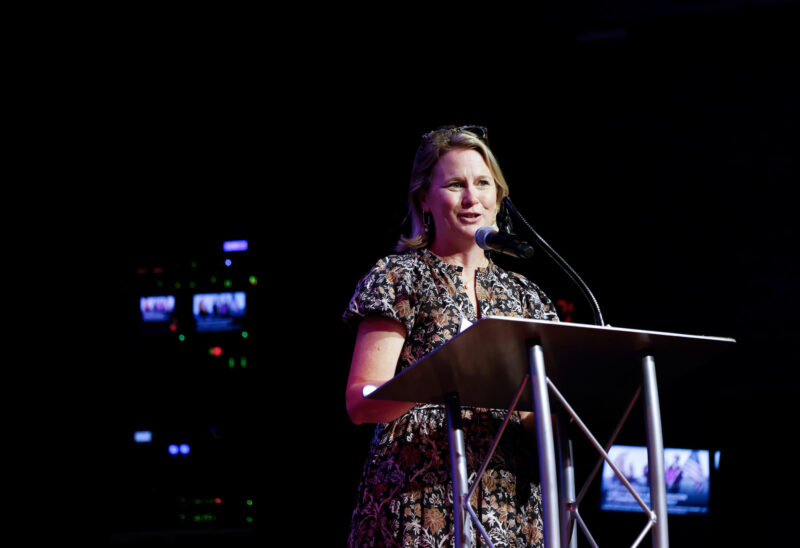When Valerie Mpawenayo arrived in Nashua from Burundi in 2008, she and her family left more than their homeland. African foods she had grown in a large garden became distant memories.
But five years ago, she put seeds back in the soil, put traditional foods back on her table and became an early member of a growing community of urban gardeners in her new home.
Valerie began planting vegetables as part of Grow Nashua, a community organization that has helped feed, educate and connect thousands of residents.
On a chilly day this spring, she stood by her 4×12-foot raised garden bed on Ledge Street, a short walk from her home. She brushed aside small pieces of winter debris on the recently thawed soil after recalling the bounty the garden provided last fall.
“She still has food in her freezer from last year,” said her daughter, Happy Valintine, translating for her mother.
“She says before the garden, she had stepped back from eating some of the African food she had eaten, but when she got the garden, she started growing her own type of eggplant and linga linga,” a leafy vegetable, Happy said. “Items they thought they would never see again from Africa are coming back to them.”
The idea for Grow Nashua sprouted on a sunny, spring day about six years ago, when Justin and Jessica Munroe were clearing their own vegetable garden in Nashua. While discussing what they might plant, the Munroes reflected on the newest immigrants and refugees arriving in their community.
An immigrant living in a small apartment, they figured, probably had no place to grow vegetables. Perhaps they could invite a family to share space in their garden. Perhaps they could find land that could turn into a larger garden for more families.
“That was the start of things,” said Justin, a former wedding photographer and avid home gardener who is now the organization’s executive director. Jessica, a 20-year veteran of classroom teaching, is its youth education director.
Grow Nashua began as a single garden space on land offered by St. Joseph Hospital. It has expanded to seven urban gardens in locations where they are most needed and added garden programs and education at elementary schools, farm stands to distribute free produce and curbside compost pickup.
The organization works closely with the United Way of Greater Nashua and has developed partnerships with local, statewide and national organizations. The Charitable Foundation has made a three-year unrestricted grant to support its operations and programs.
Justin estimates that about 9,000 residents, 10 percent of Nashua’s population, struggle to put food on the table, especially fresh food. (Feeding America reports that one in 11 Granite Staters — and one in nine children — face food insecurity.) Such daily food insecurity causes many immediate and long-term physical and mental health challenges. Fresh food is more nutritious, offers more energy, helps kids concentrate more in school and helps ward off chronic illnesses.
Grow Nashua’s gardens will provide 150 raised garden beds this year for 130-140 gardeners — primarily people with children. Those gardeners will harvest an estimated 8,000 pounds of produce. With an average of four people in each gardener’s family, nearly 600 people stand to benefit from the gardens alone.
The three Little Free Farm Stands provide another 12,000 pounds of free produce donated by Nashua residents who grow more than they can use from their own home gardens.
This year, Grow Nashua is adding to its Farm Stands and running a Little Free Farm Stand truck around the city to connect people who have food to spare with those who need it.
Justin estimates that, all told, Grow Nashua will reach about 6,000 people in 2022 through the gardens, school programs, public cooking and gardening classes, farm stands and its Curbside Compost Pickup — which diverts about 150,000 pounds of food waste each year from Nashua’s landfill.
For the compost pickup, residents pay Grow Nashua to collect their food waste weekly. A biodigester firm in Maine ferments the waste and captures methane gas for energy. And, further connecting home gardeners with the urban gardeners, Grow Nashua fertilizes its plots with the remaining compost.
Grow Nashua grows more than vegetables. It’s also growing community connectedness, joy and satisfaction.
“There is so much beyond just the food you create,” Justin said. “Every single one of the things we do is just a tool to connect people in the community,” especially those who feel alone because of language and cultural differences, not owning a car or working long hours with little opportunity to socialize.
“Refugees tend to feel isolated,” Justin said. “At our first garden, we had 20 families from 12 different countries. People were thrilled to be able to be with people from other countries and realize they weren’t the only ones feeling alone here.”
At the garden on Ledge Street, where Valerie grows food for herself, her three children and friends who benefit from her extra produce, there are 24 raised beds, eight of them designed to be accessible by gardeners using wheelchairs.
Further connecting with the surrounding community, children from the Ledge Street Elementary School meet with their gardener neighbors via a short path through woods. The path and wheelchair-accessible picnic tables were built by local Boy Scouts.
Grow Nashua has become a trusted community resource because the small staff and several hundred volunteers get to know the gardeners and their families, strive to hire gardeners for staff positions or match them with local agencies to help strengthen community.
“We have our hands in the dirt” together, Justin said. “It’s not just ‘sign up and see you later.’”
Back at the Ledge Street garden, Valerie said she misses the “big, big, big, big” garden she tended in Burundi and is grateful that Grow Nashua helps provide her with a way to grow her favorite comfort foods and help others.
For the second year, Valerie will tend two gardens — Ledge Street for day-to-day meals, and, in collaboration with Grow Nashua partner Legacy Farm, a larger garden where she and a friend grew several hundred pounds of produce last year to sell and share with other families.
“My mother says it makes her happy that what she grows is good enough to show her friends and say ‘Look, you can be doing this too,” Happy said.














![Oluwakemi Olokunboyo of Dover received a McNabb scholarship to study nursing at Great Bay Community College [Photo by Cheryl Senter]](https://www.nhcf.org/wp-content/uploads/2024/05/Scholarship-Hero-800x548.jpg)

![Rev. Heidi Carrington Heath joined Seacoast Outright. [Photo by Cheryl Senter]](https://www.nhcf.org/wp-content/uploads/2024/05/Heidi-Carrington-Thumbnail-800x548.jpg)
![Dr. Jennie Hennigar treats a patient at the Tamworth Dental Center [Photo by Cheryl Senter]](https://www.nhcf.org/wp-content/uploads/2024/05/TCCAP-Hero-800x548.jpg)
